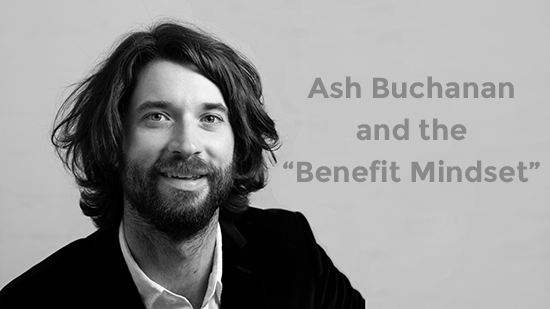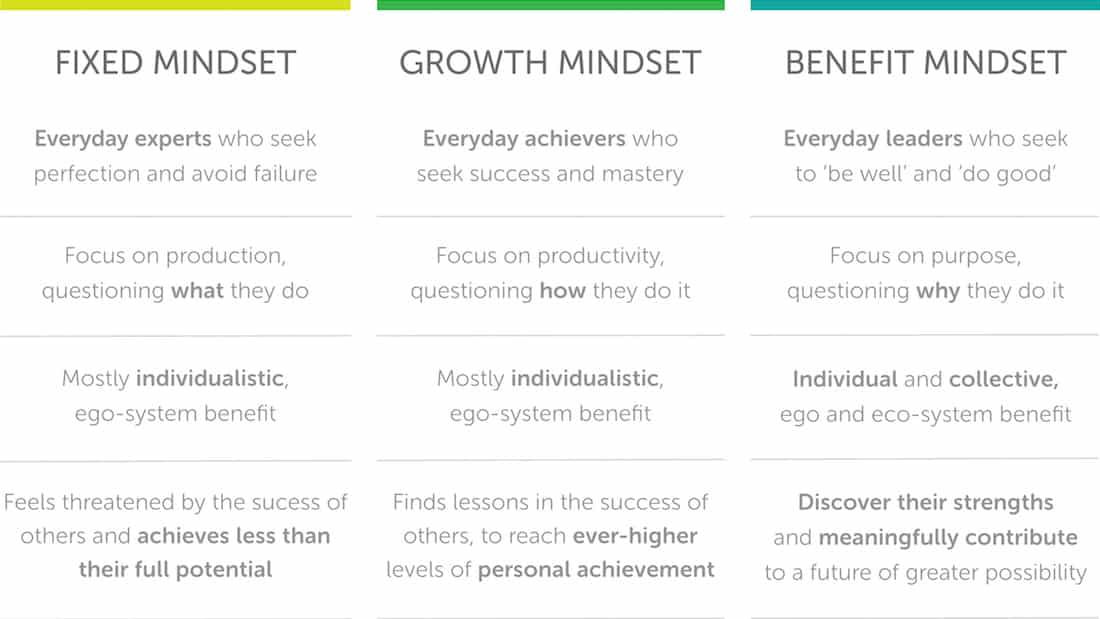
Ash Buchanan is a director at Cohere, and a design and developmental consultant with over ten years’ experience spanning the areas of wellness, leadership and sustainability. He has partnered with FONA for the design of the Education Centre of Excellence, and as a part of this has shared his work on the Benefit Mindset. The Benefit Mindset model, which builds on the pioneering research of Carol Dweck (as discussed by Ash in a blogpost), promotes the need for design that has positive impacts on the whole community.
FONA sat down with Ash to learn about the Benefit Mindset, and how adopting it can help communities.
- Tell us a bit about yourself Ash.
“I’ve got a background as an engineer focusing on sustainability, working with architects and engineers. My focus was on developing sustainability plans. I originally thought the solution to our sustainability issues was a technical one, for example putting solar panels on buildings, but as time went by I started to realise that I could provide businesses with the best solutions and plans, but unless the companies and people had the right culture the projects wouldn’t be that successful.
So basically, I became really interested in the cultural and people aspect of sustainability. That’s what lead me to a Masters of Applied Positive Psychology, and to develop the Benefit Mindset.”
- How did the Benefit Mindset model come about?
“Originally, I had wanted to create a one slide presentation to explain to my clients the sort of culture they needed for their buildings to thrive. From my research I realised it didn’t exist in the psychology literature. So, I took something close and added to it.”
- How do you describe the Benefit Mindset?
“In the framework I’ve put together there are three mindsets which people adopt and the assumptions that they hold.
Fixed mindset: they are the everyday expert. They know how everything works, they don’t want to try new things and learn.
Growth mindset: this is currently a popular idea in education and business. They are willing to fail and try new things in order to develop themselves.
I suggested that neither were sufficient to create a thriving building. So, I added a third, the Benefit Mindset. This person is willing to learn, to contribute and become an everyday leader who looks beyond personal achievement, and promotes wellbeing on both an individual and a collective level.”

- What is an everyday leader?
“An everyday leader is someone who promotes their own wellbeing and the wellbeing of the ecosystem that they are a part of. They do things that are meaningful to them, that give them a sense of purpose in life, but also bring out the best in the building they are in, or the community they are in. They see that everything thrives together rather than trying to be just individually successful.”
- How can the Non For Profit Sector adopt the Benefit Mindset?
“The issue I’m seeing in the world is lots of people starting to make a difference on their own at the moment, but what we really need is for people to come together in concert with one another.
Coming together and promoting wellbeing together rather than individualised ideas of what success is.
FONA adopts the Benefit Mindset by focusing on its culture, making time to talk about their values and instilling them in their relationships. It’s about becoming the change you seek.”
- How does the Benefit Mindset connect to the Education Centre of Excellence?
“FONA have shown the community they understand what they care about, and it’s not about being an outsider projecting their vision of the Education Centre onto the local community.
The Education Centre is a wonderful model for showing people what is possible.”
- How can we continue the use of the Benefit Mindset in education?
“We’ve actually just done a workshop with 500 students and we’ll be working with ten more schools in the next months.
The important thing is for young people to discover learning is important but it’s not the last they can do. You can learn to be kind, you can choose to be kind and that’s a different sort of school. They can take what they’ve learnt and use it to lead. Leadership labs are being set up so students can learn how to be leaders and ultimately be the change they want to see.”
Read the full transcript of the interview with Ash at this link.
Share this article and tell us why you think the Benefit Mindset is important.
Thank you for posting this as it really resonates with me.
Thoroughly enjoyed the content.